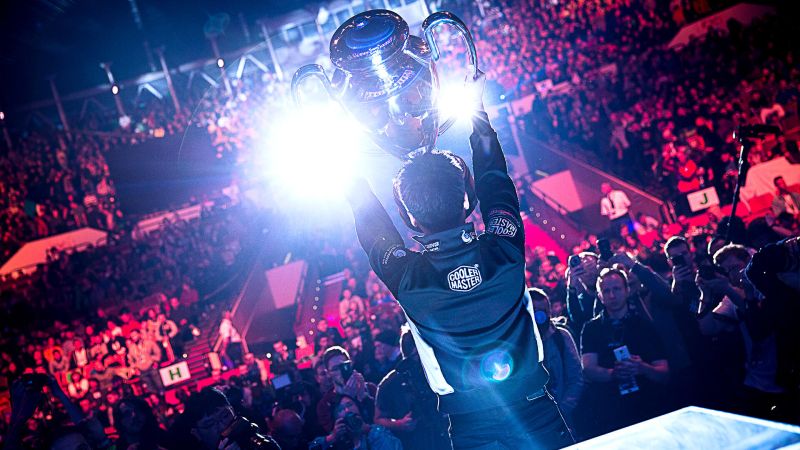
Are Esports Dying? A question you might find yourself asking
As an esports fan, player, investor, or even a curious outsider to the phenomenal esports scene a question you might find yourself asking is – is esports dying? Th genre saw rapid growth in recent years. It couldn’t last forever though, and some areas of esports have begun to shrink. There are larger trends and changes we can look at, but considering the whole industry, is esports dying?
The reality of whether esports is dying or not is, in fact, complicated. The esports industry is a boom comparable to the rise of the internet. Esports net worth annually is in excess of $1 billion now. The CCovid-19 pandemic far from killing it off, saw demand for some forms of esports skyrocket with more people staying home. However, economic difficulties in the years since have seen some sponsorships pul back and some titles shrink significantly.
Individual esports titles have their ups and downs, entire titles can disappear from the mainstream of competitive gaming. Fans of specific titles are often preoccupied with asking if their favorite game is dying. How can we judge the health of the overall industry though? There are some metrics we can look at to find out is esports dying.

© Robert Paul
Is Esports Dying or Just Specific Games?
Esports as a whole is pretty nebulous. It’s big. Individual games that make up a decent part of the industry can be good bellwethers for the overall health though.
Heroes of the Storm, for example, started well and by February 2015 nine million players had signed up for beta testing of the game. Heroes of the Storm 2.0 was released in 2017 and the game was an albeit small part of the esports niche. By December 2018 Heroes of the Storm development was downsized by Blizzard Entertainment and its esports tournaments cancelled.
One game that’s often brought up in these discussions has had its esports die. Or at least one form of it. The debate over if Overwatch is a dying esport came to a head this year with the OWL shutting down permanently. It’s been replaced by a more open, but much smaller, esports ecosystem.
Overwatch’s impact as a major esports has largely subsided though. Even older titles have also seen a big pullback. For example, the Dota 2 active players numbers has decreased significantly in the resent past.
Newer Titles Grow While Old Ones Shrink
Meanwhile, newer title Valorant is going from strength to strength. This success could last for years or decades, or be over in months. Gamers and their fans can quickly be enticed by new titles, or back to the attraction and improvement of old titles.
Fighting games are some of the oldest esports but failed to attract the same kind of money and attention as newer ones. That’s arguably changing this year, with events like the Capcom Cup X having a record prize pool. Clearly, there’s still growth in some areas of esports.
While it’s true attention (and funding) has vanished from some previously prominent parts of competitive gaming. However, new games and genres seem to have grown in equal measure.
Is Esports Different From Traditional Sports?
This rise and fall in popularity of esports titles is indicative of the gaming and esports industry. It is important to realise that esports, unlike other sports like, say football, is made up of many different games or game titles. Perhaps in this way esports is better compared to an encompassing institution like the Commonwealth Games or the Olympics.
EsportsBets.com recently interviewed Rahul Sood of leading esports betting website Unikrn asking:
“What’s your personal opinion on new emerging or ‘dying’ esports titles? For example, all the current hype for Valorant, and so many speculations about ‘Overwatch is dying’?”
Sood replied:
“Nobody owns football. Nobody needs to pay to keep football servers online and to update football balance patches.”
He illustrates the struggle to compare traditional sports and their success with esports, pointing out the investment needed by game publishers to ensure a game is playable. The rules of football and the mechanics of a football game don’t change. Players don’t need to rely on football’s owners to provide the equipment to play. Football has no owners. Gamers, however, do rely on game publishers who not only need to provide game servers but also ever-changing game content and mechanics to keep up with technology, trends, and expectations.
Esports’ success and its overall phenomena and player engagement are truly comparable to traditional sports, however, esports definitely has its differences. Esports titles will wax and wane in popularity. Sometimes support will be pulled by publishers who have to be focused on long-term profitability. This is all a natural part of the life cycle of games.
And, games aren’t always dead unless the developer pulls support entirely. There’s been comebacks from even single digit player counts with the right moves by devs.

© IEM
Esports Funding has Shrunk
We can look at individual games for the recent success stories, but across the industry, there is a recent trend relevant to the question of is esports dying. Funding has shrunk.
Why exactly (and why it’s been overstated so often) is a bit more complicated though. Funding might have shrunk, but only really from the record spending from advertisers, publishers, and sponsors, that we saw during the pandemic. In the years since, Org needs cash to stay afloat, has become a common story.
The previous years before this downturn saw a crazy growth in the popularity of streaming and esports. As economic conditions shifted, as did advertiser spending across the board. publishers equally had less cash to throw around too. The scale of crypto company spending on esports meant that outside factors like the implosion of FTX (who alone spent hundreds of millions on esports sponsorships) saw big money leaving esports.
This is less a problem of esports declining, and more that it grew too fast for a few years. It wasn’t sustainable. It’s now returning to a more normal level, if now with more legitimacy and variety. As more economies head into recession, more and more industries are estimated to shrink in the coming years. A business as filled with hype as esports has been recently was sure to be hit by this. The decline in spending in esports isn’t a huge cause for concern given how outsized growth was in the years before.
Our final thought on dying esports
Some esports may be dying, some games have died, and others looked to be dying only to experience a revival as player trends change. The success of individual esports games depends on publisher commitment and investment as well as their patronage by esports competitors and everyday gamers. For this reason, the games that make up the esports scene will change over time.
That said, the evidence that esports is alive and thriving is apparent in the industry’s overall success.












